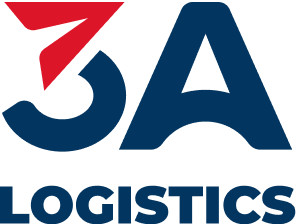Israel-Hamas war:Assessing the Impact and Potential Risks on Shipping and Port Operations
The conflict in Israel after attacks by the Islamist group Hamas on municipalities close to Gaza has caused great enterprises in the global community, while the impact on colorful sectors and diligence remains to be seen.
In an attempt to gain an initial understanding of how the shipping industry has been impacted up to this point, we have not identified any significant challenges or difficulties, as the majority of shipping and harbor operations appear to be functioning normally.

Cảng ashdod của Israel
According to Maersk’s rearmost premonitory on 11 October, Israel’s major anchorages continue to serve typically, including the company’s crucial outstations in Ashdod and Haifa.” Likewise, inland services – both road and rail – are completely functional in and around the country,” said the Danish ocean carrier in a statement.” Bookings will thus continue to be accepted to and from Israel, and weight formerly reserved to and from the country will be eased,” noted Maersk.Similarly, German shipping mammoth Hapag-Lloyd said the functional situation in Israel is presently stable with both Haifa and Ashdod anchorages operating normally.
However, the Hamburg-grounded company noted that a restriction for acceptance of dangerous weight( DG) has been enforced by the harborage of Ashdod and thus it’s no longer accepting bookings for the dangerous weight from or to the harborage. For Haifa, still, there’s no restriction in place, according to Hapag-Lloyd’s rearmost update on 11 October.” We’re laboriously assessing implicit results for DG weight formerly on board. Our vessels will continue to call at their designated anchorages in Israel. We’ll nearly cover the situation and give further updates as they become available,” said Hapag-Lloyd in its statement. British maritime threat advisory and security company Dryad Global explains,” Vessels carrying dangerous weight are likely to be kept offshore due to the increased threat from rocket attacks, which would have severe consequences if they were to hit these vessels directly. It’s probable that nonmilitary conditioning around Ashdod and farther south is in progress. A rocket has reportedly struck the Ashdod power factory within the harborage’s vicinity, but the full extent of the damage remains unclear.”
One day before, MSC reported that” since Israel’s major outstations are functional, we continue to deliver weight to/ from Israel.” The company said it’ll continue to cover the impact of the security situation on trade, follow advice from the government, and review its service network accordingly. On the other side, Israel’s southern Port of Ashkelon has suspended its regular operations.
Presently, grounded on AIS data, vessels are being diverted to the Port of Ashdod to the north, seen as a safer harborage, according to an analysis by Dryad Global.” In general, there’s no substantiation suggesting that Israeli anchorages are primary targets,” said Dryad Global, pointing out, still, that contributory damage is still a possibility, especially for vessels in Ashdod.
The maritime security company told that anchorages located further north aren’t presently in the direct line of fire from the Gaza Strip.” still, the entire situation remains unstable and demands watchful monitoring. Should Hezbollah from southern Lebanon get involved, the trouble position for the harbor of Haifa would incontinently escalate. While not a direct target, the threat of collateral damage to vessels and implicit functional dislocations would be of significant concern,” stressed DryadGlobal. All vessels should remain clear of the Gaza Strip and give full cooperation to Israeli authorities, according to Dryad recommendations. However, Dryad Global advises remaining well outside of the 12nm limit If transportation offshore of the Israeli seacoast is unnecessary.
However, Dryad Global advises vessels to keep well outside the sanctioned 12nm limit off the Israel seacoast( rather than 20nm), unless visas and vessel warrants have formerly been negotiated, If planning a passage that passes close to Israel.” Vessels should be apprehensive that’s interdicted for yachts to do from Israel to Lebanon,” noted Dryad Global, which also advises that vessels arriving at the Israeli seacoast or marinas should do so during daylight hours.












